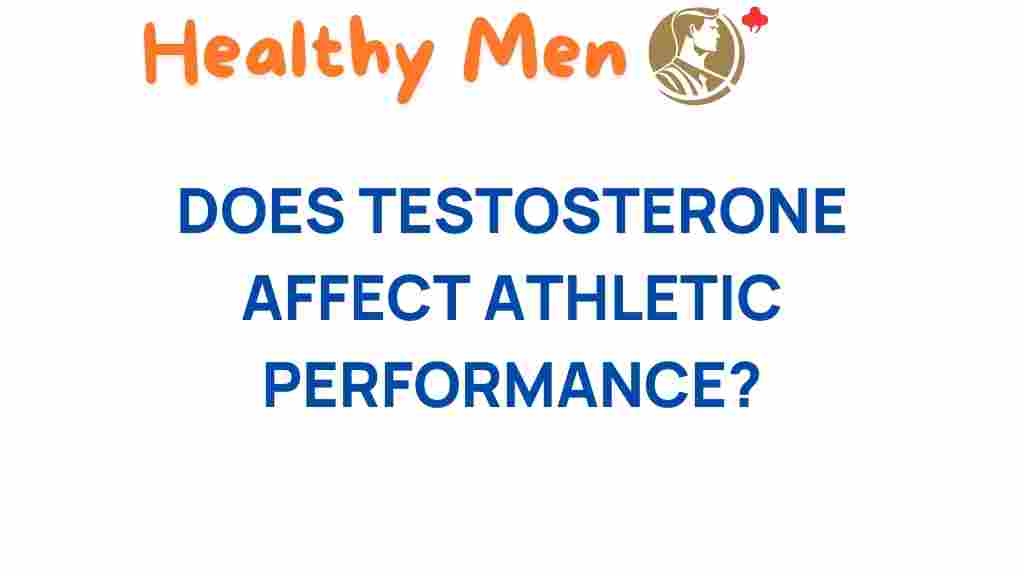Unlocking Performance: The Role of Testosterone in Athletics
Testosterone, often labeled as the primary male sex hormone, plays a crucial role not just in sexual health but also in athletic performance. Athletes and fitness enthusiasts alike are increasingly recognizing the importance of hormone levels, particularly testosterone, in enhancing their physical abilities. Understanding how testosterone affects athletic performance can help athletes maximize their potential and improve their training outcomes.
Understanding Testosterone and Athletic Performance
Testosterone is an anabolic steroid hormone produced mainly in the testicles in men and the ovaries in women, with smaller amounts produced by the adrenal glands. Its influence extends beyond just physical attributes; it also affects behavior, mood, and overall energy levels. In the realm of sports science, testosterone is a key player in:
- Muscle Growth: Testosterone promotes protein synthesis, leading to muscle hypertrophy, which is essential for strength and power.
- Energy Levels: Higher testosterone levels can enhance energy, allowing athletes to perform better and for longer periods.
- Recovery: Testosterone aids in quicker recovery from workouts, thereby enabling athletes to train harder and more frequently.
- Endurance: Optimal testosterone levels contribute to improved endurance, crucial for long-distance events.
The Science Behind Testosterone and Performance
Research in sports science has established a direct correlation between testosterone levels and various aspects of athletic performance. Here are some key findings:
- Studies show that athletes with higher testosterone levels generally have better strength and muscle mass.
- Testosterone plays a significant role in reducing fatigue and improving recovery times after intense training sessions.
- Low testosterone can lead to increased body fat, decreased muscle mass, and reduced overall energy levels, impacting performance.
Optimizing Testosterone Levels for Enhanced Athletic Performance
Given its vital role in athletic performance, it’s essential for athletes to optimize their testosterone levels. Here are steps to achieve this:
1. Proper Nutrition
The foundation of hormone health lies in nutrition. A balanced diet rich in essential nutrients can support healthy testosterone levels:
- Healthy Fats: Include sources like avocados, nuts, and olive oil, which are shown to support hormone production.
- Protein: Consuming adequate protein helps in muscle repair and growth, promoting optimal testosterone levels.
- Vitamins and Minerals: Ensure sufficient intake of zinc and vitamin D, which have been linked to testosterone production.
2. Regular Exercise
Engaging in regular physical activity, especially resistance training, can naturally boost testosterone levels:
- Strength Training: Lifting weights triggers testosterone release, enhancing muscle growth.
- High-Intensity Interval Training (HIIT): Short bursts of intense exercise followed by rest can significantly elevate testosterone levels.
3. Quality Sleep
Adequate sleep is crucial for hormone regulation:
- Aim for 7-9 hours of quality sleep each night to support optimal testosterone production.
- Establish a regular sleep schedule to enhance sleep quality.
4. Stress Management
Chronic stress elevates cortisol levels, which can negatively impact testosterone:
- Incorporate relaxation techniques such as meditation, yoga, or deep-breathing exercises into your routine.
- Engage in hobbies and activities that reduce stress and promote well-being.
Signs of Low Testosterone in Athletes
Athletes should be vigilant about the signs of low testosterone, which can significantly hinder performance. Common symptoms include:
- Fatigue or low energy
- Decreased muscle mass or strength
- Increased body fat
- Reduced libido and sexual function
- Mood changes, including depression or irritability
Testing and Diagnosing Hormone Levels
If you suspect low testosterone levels, it’s advisable to consult a healthcare professional for testing. Hormone levels can be evaluated through:
- Blood Tests: A simple blood test can determine testosterone levels and help diagnose any hormonal imbalances.
- Saliva Tests: While less common, saliva tests can also provide insights into hormone levels.
The normal range for testosterone levels varies, but for adult males, it typically falls between 300 to 1,000 ng/dL. For females, normal levels are lower, usually between 15 to 70 ng/dL. Always discuss results with a healthcare provider to understand what they mean for your health and fitness.
Troubleshooting Low Testosterone Levels
If you find that your testosterone levels are low, here are some troubleshooting tips:
- Reassess Your Diet: Ensure you’re consuming a balanced diet with adequate calories, healthy fats, and proteins.
- Increase Physical Activity: If you’re not already exercising regularly, start with moderate exercise and gradually increase intensity.
- Limit Alcohol and Substance Use: Excessive alcohol and drug use can negatively impact hormone levels.
- Consult a Professional: If lifestyle changes don’t yield results, consider speaking with an endocrinologist or sports medicine specialist.
Potential Treatments for Low Testosterone
For athletes with clinically low testosterone levels, treatment options include:
- Testosterone Replacement Therapy (TRT): This involves administering testosterone through injections, patches, or gels to restore normal levels.
- Alternative Therapies: Some may explore herbal supplements or alternative treatments, but it’s essential to consult a healthcare provider before starting any new regimen.
For a deeper understanding of testosterone and its effects on athletic performance, consider checking out this resource.
Conclusion
Unlocking performance in athletics involves understanding the pivotal role of testosterone in muscle growth, energy, recovery, and endurance. By optimizing hormone levels through proper nutrition, regular exercise, quality sleep, and stress management, athletes can enhance their overall performance. Regular monitoring of testosterone levels, recognizing symptoms of deficiency, and seeking professional advice when necessary are essential steps in maintaining peak athletic performance.
As sports science continues to evolve, the emphasis on hormone levels, particularly testosterone, will likely grow, underscoring the importance of this powerful hormone in the world of fitness and athletics. Stay informed, stay fit, and unlock your full potential!
This article is in the category Fitness and created by healthymen Team
